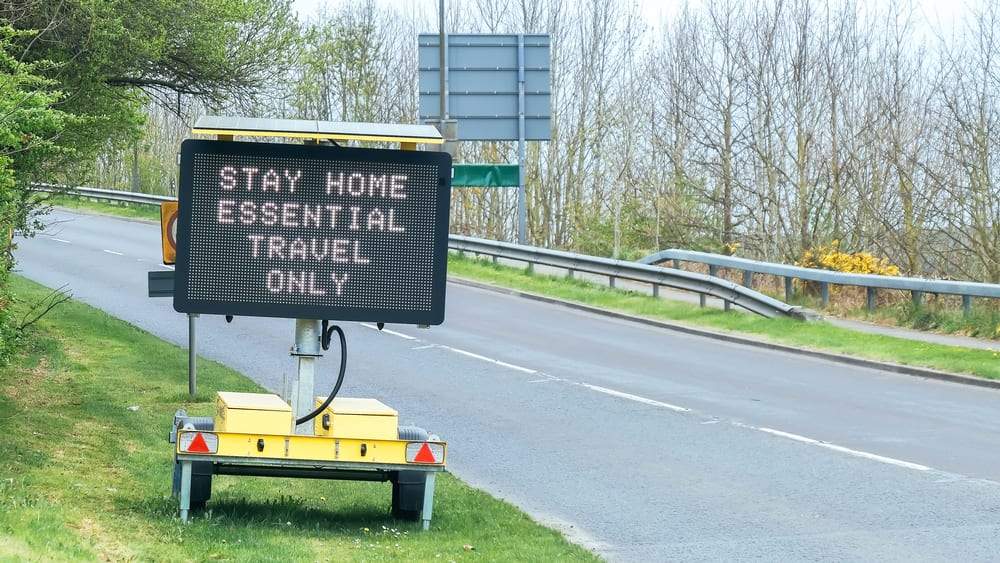Yesterday’s announcement on changes to Scotland’s tiered lockdown restrictions, which saw several areas move up into higher tiers, introduced new travel restrictions, but what are the exceptions?

Yesterday we confirmed the new COVID-19 restrictions announced by the First Minister including the new restrictions on travel, which means that people living in Level 3 or Level 4 areas must not travel outside their own local authority area, except for essential purposes and those living elsewhere in Scotland must not travel to Level 3 or Level 4 areas, except in limited exceptional circumstances.
What Are the Exceptions to the Travel Restrictions?
This is a list of limited exceptions from the guidance not to travel into or out of Level 3 and 4 local authority areas, or to or from other parts of the UK. The exceptions are:
- travel for work, or provide voluntary or charitable services, but only where that cannot be done from your home
- travel to school, college, or university where teaching is not provided remotely
- (To and from Level 3 areas but not Level 4) travel for under 18s sport
- travel for essential shopping only where it is not possible in your local authority area – you should use on-line shopping or shops, banks and other services in your local area wherever you can
- travel for healthcare, social care, childcare and other essential services, including recycling, but only if they are not available in your local area
- travel to provide care or assistance to a vulnerable person
- travel for shared parenting or travel between the two parts of an extended household
- travel to meet a legal obligation, including attending court or satisfying bail conditions, or to participate in legal proceedings
- travel for essential animal welfare reasons, such as feeding a horse or going to a vet
- local outdoor informal exercise such as walking, cycling, golf, or running (in groups of up to 6 people from no more than 2 households) that starts and finishes at the same place
- travel locally (within around 5 miles of your local authority area) to reach a place to take exercise outdoors
- travel for weddings, civil partnership registrations, funerals and other “life events” (such as bar mitzvahs and christenings)
- if you are a minister of religion or worship leader travel to your place of worship
- (to or from Level 3 areas, but not Level 4) travel to your normal place of worship
- travel to give blood at a Scottish National Blood Transfusion Service collection session
- travel to transit through Level 3 and 4 areas by road or public transport if your journey begins and ends outside such an area
- travel to move house
- travel to avoid injury, illness or to escape a risk of harm
The information here is based on the current guidance at time of writing. The Scottish administration has stated that “updated” travel guidance will be published ahead of the travel regulations being introduced into law on Friday 20 November 2020. We will provide further clarity once the Scottish administration clarifies its position and updates its travel guidance on 20 November 2020.
What Next for Employers
If you have determined that you can keep your business open through the latest phase of lockdown restrictions and therefore require your staff to continue to attend their place of work going forward, you will need to be prepared to manage any staff issues that might arise.
It would fair to say that some employees may have concerns about remaining at work; some may have concerns relating to health and safety and what they perceive to be the employer’s failure to follow government guidance and some may simply be extremely anxious about the risk posed by COVID-19 and frightened of a remaining at their place of work and some may have unexpected childcare issues due to after school care services being withdrawn.
Whatever the issue you will need to adopt an appropriate approach dependent on the specific reasons set out by each employee, but you will need to proceed with caution. You should investigate fully, gather the facts, then take further advice before making any substantive decisions to avoid the risk of possible claims at the Employment Tribunal.
We’re Here to Help
If you are an Employer and require advice and support on any employment matters, COVID related or otherwise, call us now on 0800 612 4772 or Contact us via our website and we will assist you to navigate through the employment law minefield created by the COVID-19 crisis and comply with your legal obligations.

 Advice on Settlement Agreements Employees
Advice on Settlement Agreements Employees Advice on Settlement Agreements Employers
Advice on Settlement Agreements Employers
